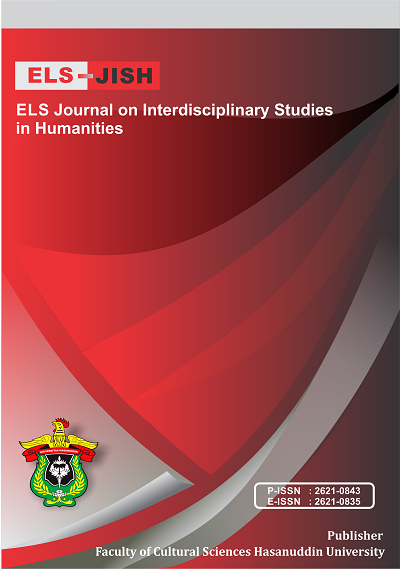Nyerere in Eyes of his Critics
DOI:
https://doi.org/10.34050/elsjish.v4i1.13135Keywords:
Nyerere, Criticisms, Tanzania, Islamic religion, UjamaaAbstract
There are a number of positive ideals about Mwalimu Julius Nyerere in the literatures. His ideals includes among others his devotion for peace, security, unity and democracy. However, the ideals do not limit the visibility of his negative traits. This paper specially examines the criticisms against Nyerere. The paper looks at the portrayal of Nyerere in number literatures from his critics. It examines the literatures against Nyerere in number of issues including his role in the decolonization struggle, the situation of democracy and individual freedom during his reign and his position towards Islamic religion and Zanzibar revolution. The paper establishes that most of criticisms against Nyerere are not refuted because supporters and critics talk about different things. Whereas his supporters put forward his role in building the nation, critics focus his in his economic failure and deprivation of individual freedom in Tanzania.
References
Acheson-Brown, D. G. (2001). The Tanzania Invasion of Uganda: A Just War? International Third World Studies Journal and Review, 12 1-11.
Brennan, J. R. (2015). Julius Rex: Nyerere through Eyes of His Critics. In M. A. Fouere (Ed.), Remembering Nyerere in Tanzania: History, Memory, Legacy (pp. 143-169). Dar es Salaam: Mkuki na Nyota Publishers Ltd.
Conchiglia, A. (2017). Was Mozambique Air Crash an Assassination?: The Mysterious Death of Samora Machel. Le Monde Diplomatique. Retrieved from https://mondediplo.com/2017/11/12Machel website:
Cornelli, E. M. (2012). A Critical Analysis of Nyerere’s Ujamaa: An Investigation of its Foundations and Values. (Doctor of Philosophy), The University of Birmingham.
Fouere, M.-A. (2015). Recasting Julius Nyerere In Zanzibar: The Revolution, the Union and the Enemy of the Nation. In M.-A. Fouere (Ed.), Remembering Nyerere in Tanzania: History, Memory, Legacy (pp. 171-195). Dar es Salaam: Mkuki na Nyota Publishers Ltd.
Hunter, E. (2015). Julius Nyerere, the Arusha Declaration, and the Deep Roots of a Contemporaary Political Metaphor. In M. A. Fouere (Ed.), Remembering Nyerere in Tanzania: History, Memory and Legacy (pp. 73-94). Dar es Salaam: Mkuki na Nyota.
Kambona, O. (1991). The Time I Met Mao. Salisbury Review, 19.
Kweka, A. N. (1995). One-Party Democracy and the Multi-Party State. In C. Legum & G. Mmari (Eds.), Mwalimu: The Influence of Nyerere (pp. 61-79). Dar es salaam, London, Trenton: Britain-Tanzania Society in association with James Currey, Mkuki na Nyota, Africa World Press.
Mesaki, S., & Malipula, M. (2011). Julius Nyerere's influence and legacy: From a proponent of familyhood to a candidate for sainthood. International Journal Of Sociology And Anthropology, 3(3), 93-100.
Mohiddin, A. (1999). The Mwalimu Julius Kambarage Nyerere: A Distinguished African Statesman an African Giant, amongst Global Giants a Token Tribute. Présence Africaine, Nouvelle série(160 ), 3-13.
Muhsin, A. a.-B. (2002). Conflict and Harmony in Zanzibar. Memoirs. Dubai: (self-published).
Njozi, H. M. (2010). Muslims and the State in Tanzania. Dar es Salaam: Dar es Salaam University Muslims Trusteeship (Dumt).
Nyerere, J. K. (1977). Ujamaa: Essays on socialism. Dar-es-salaam: Oxford University Press.
Nyerere, J. K. (1966). Freedom and Unity/Uhuru na Umoja: A Selection from Writings and Speeches 1952-1965. Dar-es-Salaam: Oxford University Press.
Ochieng, P. (1999). Mwalimu Nyerere's bequest to Mkapa a tall order. Nyerere 14th October 1999: Press coverage from the Internet, pp. 28-30. https://www.juliusnyerere.org/resources/P21
Omari, C. K. (1995). The Management of Tribal and Religious Diversity. In C. Legum & G. Mmari (Eds.), Mwalimu: The Influence of Nyerere (pp. 23-31). London, Dar es salaam, Trenton: Britain-Tanzania Society in association with James Currey, Mkuki na Nyota, African World Press.
Othman, H. (1995). The Union with Zanzibar. In C. Legum & G. Mmari (Eds.), Mwalimu: The influence of Nyerere (pp. 170-175). Dar es salaam, London, Trenton: Britain-Tanzania Society, Mkuki na Nyota, Africa World Press, James Currey.
Said, M. (1998). The Life and Times of Abdulwahid Sykes (1924-1968): The Untold Story of the Muslim Struggle against British Colonialism in Tanganyika. London: Minerva Press.
TBC1 (Producer). (2014). Kamati ya maridhiano six: Mhe. Tundu Lissu. Retrieved from https://m.youtube.com/watch?v=4Yvp
Venter, A., & Olivier, M. (1993). Human Rights in Africa: Nyerere and Kaunda. International Journal on World Peace, 10(1), 21-33.
Warioba, S. J. (2004). Principles of National Unity in Tanzania The Commemoration of Mwalimu Julius K nyerere 79th and 80th Birth Dates (pp. 16-23). Dar es Salaam: Mwalimu Nyerere Foundation.
Downloads
Published
How to Cite
Issue
Section
License
Copyright (c) 2021 Ignas Fedeo

This work is licensed under a Creative Commons Attribution-NonCommercial-ShareAlike 4.0 International License.






